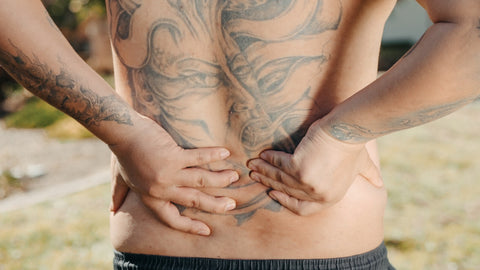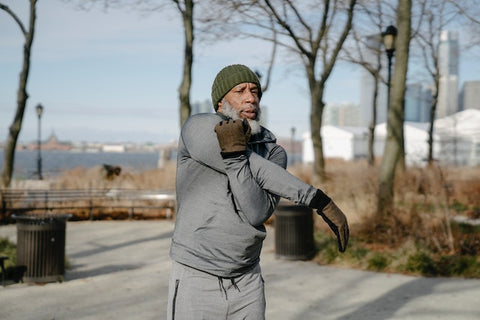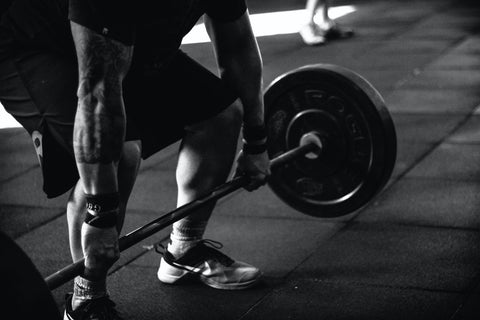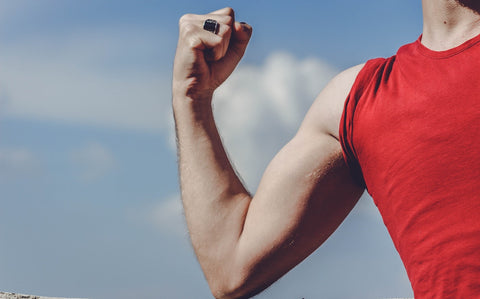
HOW TO CURE SWOLLEN MUSLCES WITH THESE SIMPLE HOME REMEDIES
If you’ve ever experienced a heavy workout, you know that feeling of soreness the next day can feel like hell. Don’t worry, it is one of the most common sports injuries.
When your muscles are stressed beyond their normal capacity, they respond by contracting and becoming smaller as they rebuild with new muscle fibers to be stronger than before. This results in temporary swelling known as post-exercise hyperhydrosis.
But how do swollen muscles feel so bad? It is because there is a lot of inflammation taking place in the affected areas and it leads to pain, stiffness and tenderness. For most people who exercise regularly, this is not something to worry about. However, if you are experiencing symptoms such as these on a regular basis after your workouts, it could be indicative of something more serious going on under the surface.
What Can Cause Swollen Muscles?
Here are a few conditions that can cause swollen muscles:
- Overuse injuries:
If you do too much exercise without enough rest and recovery time, your muscles can be overworked and become injured. This can lead to inflammation and swelling in your muscles.
- Muscle strains:
When your muscles are overstretched during high-intensity exercise, they can tear. This can cause inflammation and lead to swelling in the muscles.
- Infections:
Infections in your muscles, such as abscesses or blood infections, can cause swelling.
- Lactic acid build-up:
Excessive lactic acid buildup can cause swelling in your muscles.
- Bad form during exercise:
If you aren’t using proper form while exercising, you can cause injuries to your muscles. This can lead to swelling in your muscles.
- Weather changes:
Temperature changes and humidity can result in swelling of your muscles due to the amount of water in your body increasing.

How to know if your muscles are swollen or injured?
There are a few telltale signs of swelling and swelling caused by an injury or infection. If your muscles are swollen or inflamed, you will likely experience pain or tenderness along with stiffness and a reduced range of motion.
Swelling is usually localized to one or two specific muscles or areas. If your pain is widespread, you are experiencing swelling and not an injury. In addition to swelling and pain, you may also experience warmth and redness in the affected areas and have difficulty moving the affected muscles.
You may also have a fever and chills if your muscles are infected. You should see a doctor if you are experiencing swelling and pain, especially if the pain doesn’t go away. Your doctor can determine what is causing your swollen muscles and prescribe you the appropriate course of treatment.
We have also explained in detail about preventing and treating other common injuries like rotator cuff injuries and shin splints.

Best Home Remedies for Swollen Muscles
- Cold compress:
Applying a cold compress to your sore muscles can help reduce swelling and decrease pain. You can make a cold compress by filling a bag with ice cubes and wrapping it in a towel or you can use a reusable gel pack for convenience.
- Epsom salt bath:
Epsom salt is known to aid in relaxation and relieve muscle pain and spasms. Soaking in a bath with Epsom salt is a great way to relieve swollen muscles and reduce swelling.
- Ginger compress:
Ginger has anti-inflammatory properties that can help reduce swelling and pain in your muscles. You can add ginger to a cold compress or apply a fresh ginger root directly to the affected areas.
- Hydration:
It is important to stay hydrated when you are experiencing swelling in your muscles. Excessive hydration can cause your muscles to swell more and make the pain worse.

Tips to prevent swollen muscles after exercise
- Warm-up:
Warming up before your workout is the best way to prevent injuries and reduce the risk of causing muscle strains.
- Cool-down:
Cooling down after your workout is just as important as warming up. Not only will it help prevent injuries, but it will also help your muscles cool down and recover faster.
- Drink enough water:
Dehydration can cause your muscles to swell and feel more painful. Staying hydrated will help prevent this. James M. Glick has talked in detail about the causes of muscle pain and he also advises drinking plenty of fluids as one of the ways to treat it.
- Stretch:
It is important to stretch after your workouts and do so for at least 30 seconds per muscle group. Stretching will help prevent injuries and reduce the amount of muscle strains you experience.
- Have a rest day:
If you are experiencing frequent muscle strains and injuries, it may be a sign that you need more rest. William E. Garrett also stressed the importance of rest in his medical journal. Rest at least one day per week so your muscles can fully recover and rebuild.
Make exercising fun again
If you are experiencing pain and swelling in your muscles after your workouts, there is a good chance you are overtraining. The best thing to do is to back off from your workouts for a few days and stop exercising entirely if the pain continues.
If you are experiencing swelling and pain, be sure to rule out any serious conditions before you try to treat it yourself. Swelling is generally less serious than other muscle-related injuries and can generally be treated at home.
About the Author

Qurat Shahzad
Qurat-ul-Ain is a dedicated writer who likes to write anything and everything.




